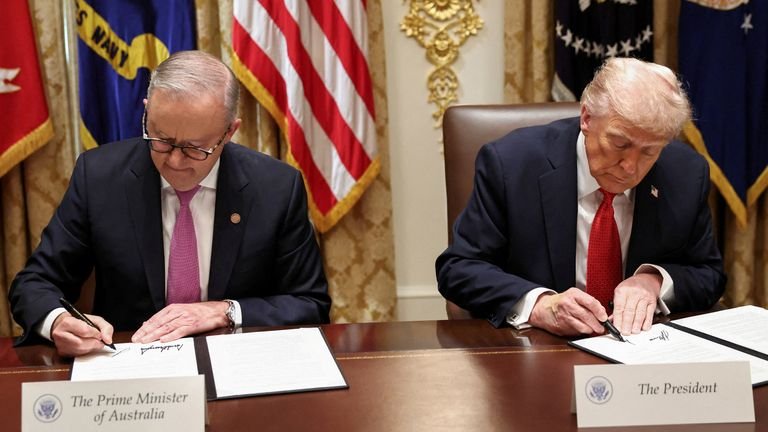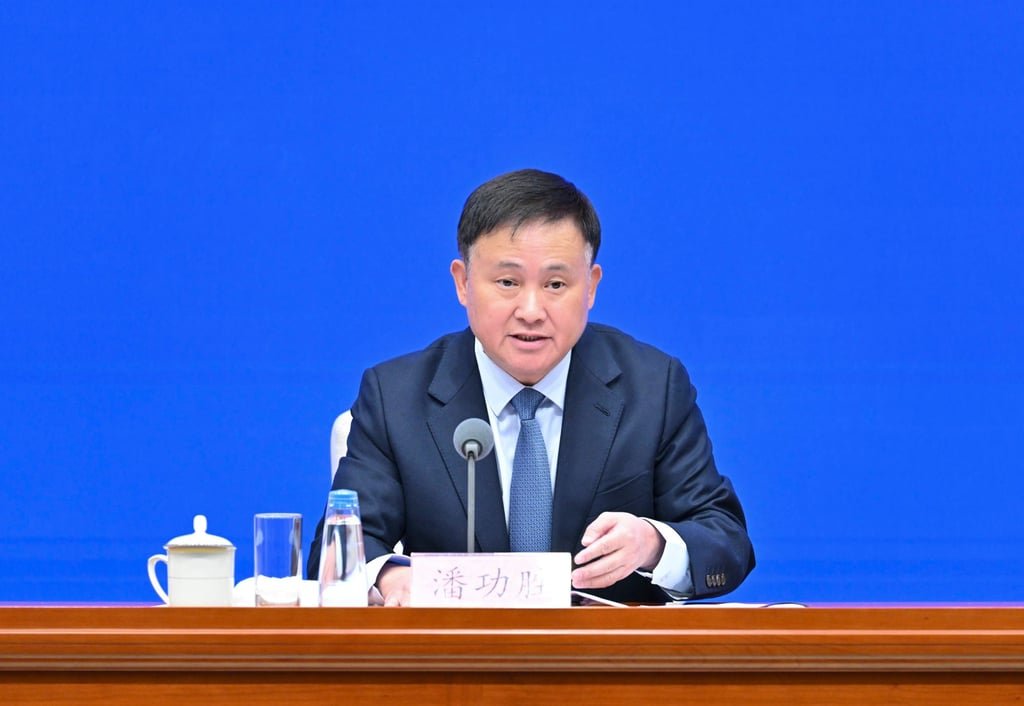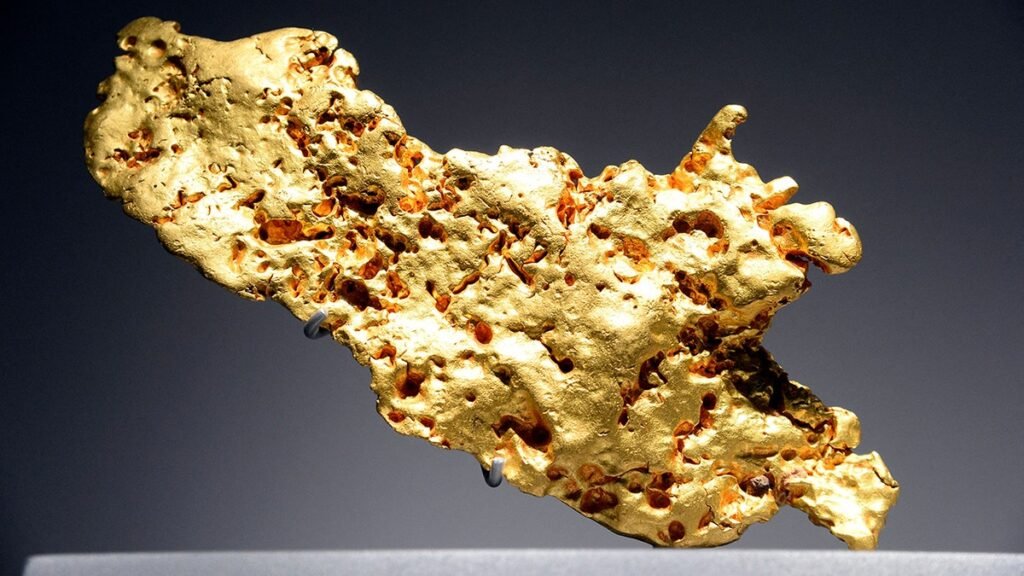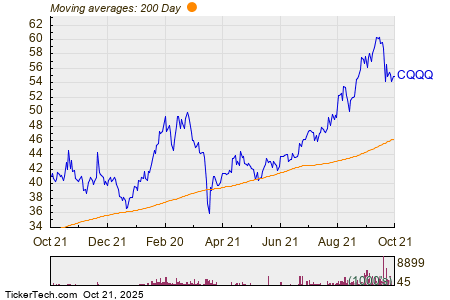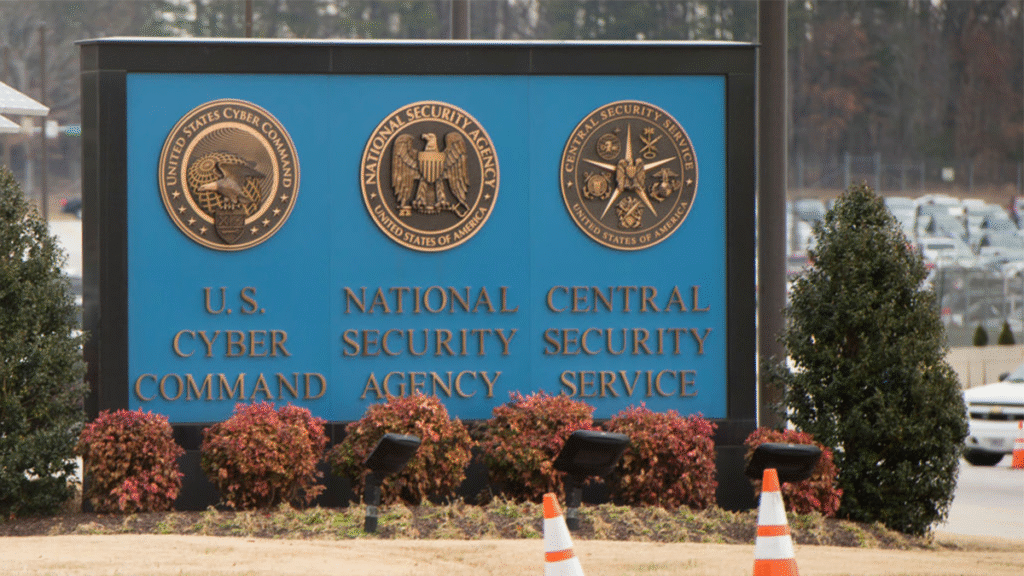Former Deputy National Security Advisor K.T. McFarland joins Mornings with Maria to weigh in on President Donald Trumps rare mineral deal with Australia and his Middle East peace deal.
The agreement between the U.S. and Australia to partner on developing supplies of rare earths and critical minerals amid trade tensions with China, the world’s leading supplier, prompted a response from the Chinese government.
The U.S.-Australia deal was signed by President Donald Trump and Australian Prime Minister Anthony Albanese on Monday at the White House after China announced export controls on rare earths earlier this month.
“The global industrial and supply chains came into shape as a result of the choices of the market and businesses,” Chinese Embassy spokesperson Liu Pengyu told FOX Business in a statement.
“Countries with mineral resources need to play a positive role in keeping relevant industrial and supply chains safe and stable and to ensure normal trade and economic cooperation,” he added.
TRUMP, AUSTRALIAN PM SIGN $8.5B CRITICAL MINERALS DEAL TO COUNTER CHINA DOMINANCE IN RARE EARTHS
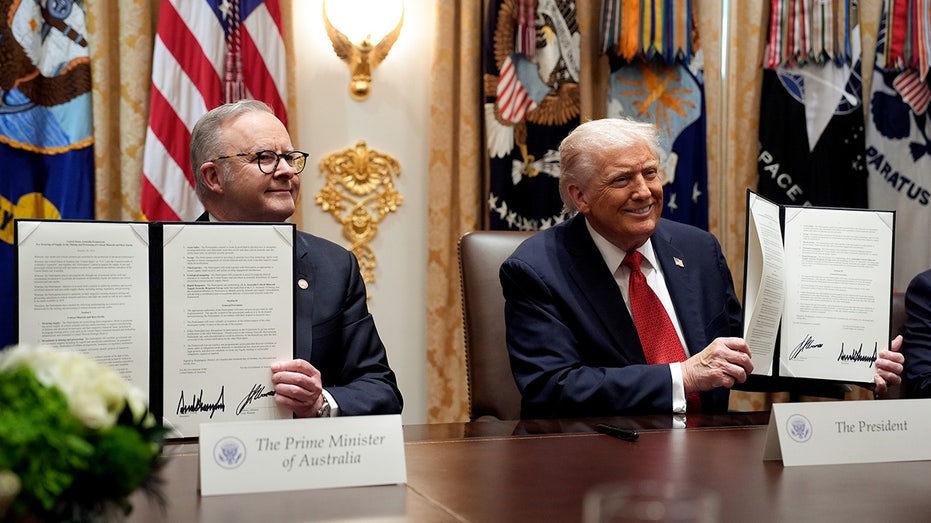
President Trump and Prime Minister Albanese signed the rare earths cooperation agreement on Monday. (Yuri Gripas/Abaca/Bloomberg via Getty Images)
Rare earths are used in a range of applications and are a critical component in consumer-oriented devices like smartphones and electric vehicle batteries, and are also used in military equipment like radars and cruise missiles.
China is the world’s leading producer of rare earths and has the largest reserves, according to a report by the U.S. Geological Survey (USGS).
MAJOR US STEELMAKER PIVOTS TO RARE EARTH MINERALS AS CHINA TIGHTENS GRIP

Rare earths have become a prominent point of contention in the ongoing trade dispute between the U.S. and China. (Brendan Smialowski/AFP/Getty Images)
The USGS found that in 2024, China’s mines produced 270,000 tons of rare earths and the country has 44 million tons of reserves.
By comparison, the U.S. produced 45,000 tons of rare earths and had 1.9 million tons of reserves, while Australia produced 13,000 tons and had 5.7 million tons of reserves.
TRUMP APPROVES ALASKA PROJECT FOR MINING CRITICAL MINERALS: WHAT IS THE ECONOMIC IMPORTANCE?
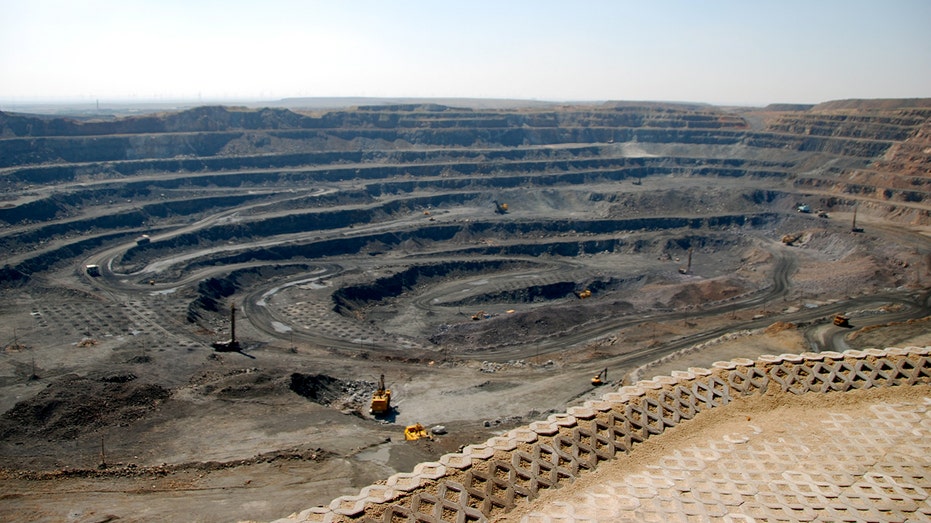
China is the world’s leading miner of rare earths and critical minerals. (Bert van Dijk/Getty Images)
According to a document outlining the agreement released by the White House, the U.S. and Australia each committed to invest $1 billion over the next six months in mining and processing projects, as well as to set a minimum price floor for critical minerals.
The two countries also agreed to cut permitting for mines, processing facilities and related operations to boost production of rare earths and critical minerals.
GET FOX BUSINESS ON THE GO BY CLICKING HERE
The deal also calls for cooperation between the U.S. and Australia on mapping geological resources, mineral recycling and efforts to stop the sale of critical mineral assets on national security grounds.

